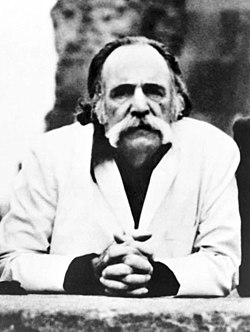| 16th Academy Awards | |
|---|---|
 Official pamphlet cover | |
| Date | March 2, 1944 |
| Site | Grauman's Chinese Theatre Hollywood, Los Angeles, California |
| Hosted by | Jack Benny |
| Highlights | |
| Best Picture | Casablanca |
| Most awards | The Song of Bernadette (4) |
| Most nominations | The Song of Bernadette (12) |
The 16th Academy Awards were held on March 2, 1944, to honor the films of 1943. This was the first Oscar ceremony held at a large public venue, Grauman's Chinese Theatre, and the first ceremony without a banquet as part of the festivities. [1] [2] The ceremony was broadcast locally on KFWB, and internationally by CBS Radio via shortwave. Jack Benny hosted the event, which lasted one hour and 42 minutes. [3] This was the first ceremony to welcome admissions from the general public. [1]
Contents
- Winners and nominees
- Awards
- Special Award
- Irving G. Thalberg Memorial Award
- Presenters and performers
- Presenters
- Performers
- Multiple nominations and awards
- See also
- References
For the first time, winners for Best Supporting Actor and Best Supporting Actress were awarded full-size statuettes, instead of smaller-sized awards mounted on a plaque. [4] This was the last year until 2009 to have 10 nominations for Best Picture; The Ox-Bow Incident is, as of 2023 [update] , the last film to be nominated solely in that category.
For Whom the Bell Tolls was the third film to receive nominations in all four acting categories. This was the first year in which each acting category had at least one nominee from a color film.
The Tom and Jerry cartoon series won its first Oscar this year for The Yankee Doodle Mouse ; it would go on to win another six Oscars, including three in a row over the next three years, from a total of 13 nominations.








